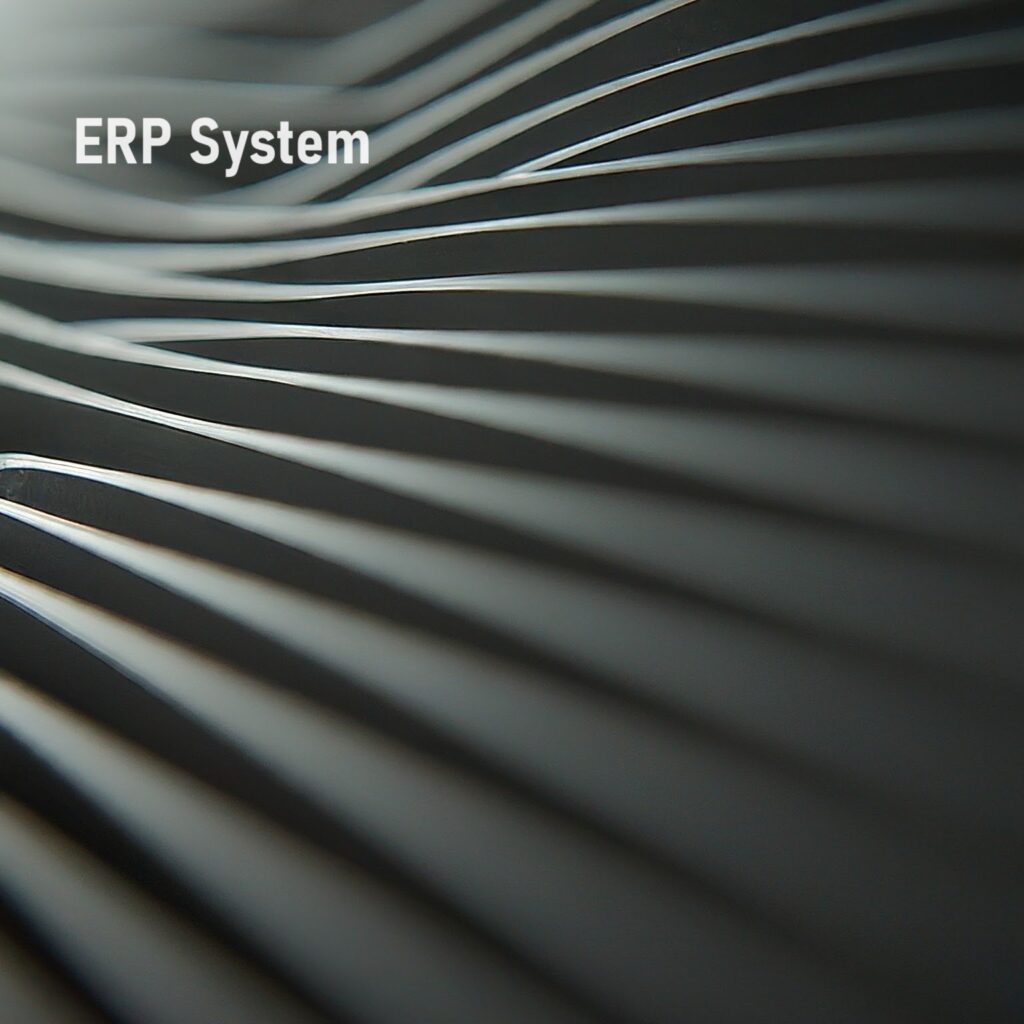Choosing the right ERP software is a critical decision that can significantly impact a company’s efficiency and growth. There are multiple ERPs in existing today and with custom creators and freelancers a like the list is bound to grow. We are limiting the list of ERP to what is available in the market today. This article deals with what options do customers have as Top ERP systems available at their dispense.
What is ERP?
Imagine trying to manage a bustling business where every department—from finance to manufacturing, to human resources—is working in silos. It’s chaotic, isn’t it? This is where ERP, or Enterprise Resource Planning, comes into play, acting as the glue that holds all these moving parts together. ERP is more than just software; it’s the heart of a company’s operations, pumping vital information seamlessly across departments. At its core, ERP integrates various functions like accounting, inventory management, procurement, and customer relationship management into a single unified system. This not only streamlines processes but also ensures that everyone in the organization is on the same page, working towards a common goal.
In a world where businesses are constantly evolving, ERP systems have become essential. They break down barriers, reduce inefficiencies, and allow companies to respond more swiftly to market demands. With real-time data at their fingertips, decision-makers can make informed choices that propel the business forward. It’s like having a crystal ball that not only shows you what’s happening now but also helps predict what’s coming next. In essence, ERP systems empower businesses to operate more efficiently, scale operations with ease, and ultimately, achieve sustained growth. They are the unsung heroes that keep the wheels of commerce turning smoothly, making sure that no detail, no matter how small, is overlooked.
Here is a list of the top 10 ERP systems on the market today.
SAP ERP
- Specialties:
- Customization: Highly customizable to fit the specific needs of large enterprises.
- Industry Solutions: Extensive industry-specific solutions, including manufacturing, retail, and finance.
- Global Reach: Supports multiple languages and currencies, making it ideal for multinational companies.
- Advanced Analytics: Integrated analytics and reporting tools, powered by SAP HANA.
2. Oracle ERP Cloud
- Specialties:
- Cloud-Based: Fully cloud-based, offering scalability and reduced IT overhead.
- Integrated Suite: Combines ERP, HCM (Human Capital Management), and SCM (Supply Chain Management) in one platform.
- AI & Machine Learning: Incorporates AI and machine learning for predictive analytics and automation.
- Security: Strong focus on data security and compliance with global standards.
3. Microsoft Dynamics 365
- Specialties:
- Integration with Microsoft Products: Seamless integration with Microsoft Office 365, Azure, and other Microsoft tools.
- Modularity: Offers a range of modules that can be implemented separately or together, such as Finance, Operations, and Sales.
- User-Friendly: Known for its intuitive user interface and ease of use.
- AI Capabilities: Includes AI-driven insights and analytics for better decision-making.
4. Infor CloudSuite
- Specialties:
- Industry Focus: Tailored solutions for specific industries like manufacturing, healthcare, and public sector.
- Cloud-Based: Offers cloud deployment with flexibility and scalability.
- User Experience: Emphasizes user-friendly design and role-based dashboards.
- Networked Supply Chain: Enhanced features for supply chain management and collaboration.
5. NetSuite ERP
- Specialties:
- Cloud ERP: A fully cloud-based solution designed for small to mid-sized businesses.
- Real-Time Data: Provides real-time visibility into financials, inventory, and order management.
- Scalability: Scales with the growth of the business, making it suitable for startups to large enterprises.
- Global Business Management: Supports multi-currency, multi-language, and multi-subsidiary operations.
6. Epicor ERP
- Specialties:
- Manufacturing Focus: Strong emphasis on manufacturing with specialized modules for production, supply chain, and project management.
- Flexibility: Available in cloud, on-premises, or hybrid deployment models.
- User Experience: User-friendly interface designed to simplify complex operations.
- Industry-Specific Solutions: Tailored for industries like manufacturing, distribution, and retail.
7. Sage X3
- Specialties:
- Mid-Sized Enterprises: Designed for mid-sized enterprises needing robust ERP solutions.
- Process Manufacturing: Strong capabilities in process manufacturing, including traceability and compliance.
- Scalability: Flexible enough to grow with the company, supporting multi-country operations.
- Financial Management: Advanced financial management features with strong analytics and reporting.

8. Workday ERP
- Specialties:
- Human Capital Management: Leading ERP solution for human capital management and financial management.
- Cloud-Native: Built from the ground up as a cloud-native platform, ensuring modern and scalable architecture.
- User-Centric Design: Prioritizes ease of use and an intuitive user interface.
- Real-Time Data: Delivers real-time insights into financial and HR operations.
9. Odoo
- Specialties:
- Open Source: An open-source ERP system, allowing for extensive customization and flexibility.
- Comprehensive Suite: Includes a wide range of business applications like CRM, eCommerce, accounting, and inventory.
- Cost-Effective: Affordable pricing, especially for small businesses and startups.
- Community Support: Strong community support for continuous improvement and development.
10. IFS Applications
- Specialties:
- Asset Management: Known for its asset management and maintenance capabilities, especially in industries like aerospace, defense, and energy.
- Project-Centric: Strong focus on project management and service management.
- Industry-Specific: Tailored solutions for sectors like aviation, energy, and utilities.
- Global Reach: Supports multi-site, multi-language, and multi-currency operations.
11. Acumatica
- Specialties:
- Small to Mid-Sized Businesses: Tailored for small to mid-sized businesses with scalable solutions.
- Cloud ERP: Cloud-native ERP with options for on-premises deployment.
- Integration: Strong integration capabilities with third-party applications.
- Mobile-Friendly: Optimized for mobile devices, allowing for on-the-go access to ERP functionalities.
12. Plex Systems
- Specialties:
- Manufacturing ERP: Focused on manufacturing, particularly in automotive and food & beverage industries.
- Cloud-Based: Entirely cloud-based, offering flexibility and ease of access.
- Real-Time Data: Provides real-time visibility into production, inventory, and supply chain.
- Quality Management: Advanced quality management features to ensure compliance and traceability.

13. SYSPRO
- Specialties:
- Manufacturing & Distribution: Tailored for manufacturing and distribution industries.
- User Experience: Known for a user-friendly interface and easy-to-use tools.
- Scalability: Scalable to grow with the business, suitable for small to mid-sized enterprises.
- Compliance & Traceability: Strong focus on compliance, traceability, and regulatory adherence.
14. QAD ERP
- Specialties:
- Manufacturing & Supply Chain: Focus on manufacturing and supply chain industries, especially automotive, life sciences, and food & beverage.
- Cloud & On-Premises: Offers both cloud and on-premises deployment options.
- Global Operations: Supports global operations with multi-language and multi-currency capabilities.
- Lean Manufacturing: Emphasizes lean manufacturing principles for efficiency and waste reduction.
This list covers some of the most popular ERP systems, each with unique strengths tailored to specific industries and business needs.
Summarize
The list of ERP systems we explored showcases the diversity and specialization available in today’s market. From SAP’s deep customization capabilities to NetSuite’s cloud-native flexibility, each ERP system brings something unique to the table, tailored to different business needs. Whether it’s the AI-driven insights of Oracle ERP Cloud, the user-friendly interface of Microsoft Dynamics 365, or the industry-specific solutions offered by Infor CloudSuite and Epicor, there’s an ERP solution out there for every kind of business, regardless of size or sector.
Choosing the right ERP system is like finding the perfect partner; it needs to align with your goals, support your growth, and adapt as your needs change. These ERP systems not only streamline operations but also enable businesses to thrive in an increasingly competitive landscape. As businesses continue to evolve, so too will these ERP systems, ensuring they remain the backbone of successful enterprises for years to come.
Curated Reads:





BaddieHub Great information shared.. really enjoyed reading this post thank you author for sharing this post .. appreciated